Civilizational States
This is young terminology. The term “civilization-state” was first used by American political scientist Lucian Pye in 1990 to categorize China as having a distinct sociopolitical character, as opposed to viewing it as a nation-state in the European model.
The use of this new term implies that China was and still is an “empire state” with a unique political tradition and governmental structure, and its proponents asserted that the nation-state model fails to properly describe the evolution of the Chinese state. Proponents of the label describe China as having a unique historical and cultural unity, derived from a continuous process of cultural syncretism. The term was further popularized by its use in When China Rules the World by British political scientist Martin Jacques.
After reading a plethora of material on Civilizational States, two issues are at the forefront. The first is that the differences between a civilizational state and a nation station (in the European model) are massive. The second is that the most often asked question is if India qualifies as a civilizational state.
The following article is one of the youngest in this genre and is critical. It is a good place to start thinking about this although there is much that we will not agree with. With the fall of the European model, a civilizational state seems to me a very civilized way forward.
Civilization States Are Profoundly Illiberal
The economic and technological convergence of globalization did not lead to a singular cosmopolitan order, but to a great divergence, in which prospering emergent nations, most notably China, once again attained the wherewithal to chart a path forward based on their own civilizational foundations. Economic and technological strength engenders, not extinguishes, cultural and political self-assertion.
This development has led Bruno Maçães to argue we are seeing the return of “civilization states,” such as Vladimir Putin’s Russia and Xi Jinping’s China, that are pushing back against the universalist claims of a liberal world order.
My friend Bruno Maçães is an important thinker, one of the rare breed of public intellectuals who has actually served in the world of politics. What he says always deserves close attention. His thesis on the return of civilizations is, however, flawed and requires challenge.
On the core proposition of a central divergence between the idea of liberal universalism and the particularisms of individual civilizations, one cannot disagree. Civilizations rest on an overarching framework for social and political life subsuming elements of religion, ethnicity and language, while liberalism seeks to transcend such elements in claiming universal applicability for its values and principles.
But where Maçães’ reasoning gets fuzzy is in his insistence that identity and civilization are distinct; thus to him, Ukraine and Russia are not the same civilization, despite Orthodox Christianity, Caucasian ethnicity and similar, if not overlapping, languages. “Both nations are slowly gravitating to their own civilizational worlds,” he argues, “rooted in widely divergent histories and feelings and culminating in different political theories.” To me, these seem to be classic cases of differences in national identity within the same broad civilization; to Bruno, these are civilizational differences. But nowhere does he explain why, preferring averment to argument. Dismissing notions of national identity as “the mutilated corpse of civilization” has an epigrammatic ring to it but is hardly a useful analytical tool.
The distinction becomes even more unclear the more he attempts to delineate it. “Civilization,” he writes, “needs to be distinguished from any notion of religious, ethnic or national identity.” But those are precisely the elements on which civilizations are constructed! The definition of civilization as “an exercise in political reason, the effort to organize collective life around principles,” completely elides the more fundamental distinction that I make in my book “The Battle of Belonging” between identity, which rests on such immutable factors as religion, ethnicity and language, and liberal civic structures based on constitutions and institutions, which have nothing to do with “civilization” as such but which permit entry to all who adhere to the principles embedded in them.
Bruno is right when he writes, “What distinguishes a civilization state is its ability to provide an overarching framework for social and political life and therefore a viable or plausible alternative to the liberalism of the West.” The problem that he overlooks is what that overarching framework is built on: elements deriving from birth and geography that individuals cannot change.
“Identity politics, which derives often from civilizational and cultural factors, remains ineluctably opposed to liberalism.”
This is why identity politics, which derives often from civilizational and cultural factors, remains ineluctably opposed to liberalism. Bruno says that “states, thus understood, might well have a territory and a people, but their center of gravity would lie in the way of life embodied in the state. The illusion of a homogeneous people inhabiting an ancestral land is not part of the logic of a civilization state.” I’m sorry, dear friend, but simply saying it doesn’t make it so.
The logic of civilization is indeed precisely that, and all the existing and would-be “civilization states” he identifies — China, Russia, India, Israel — are predicated on precisely that logic. In India, indeed, the struggle for the country’s soul is between those who celebrate India’s diversity and wish to preserve an idea of nationhood based on civic nationalism, and those who, in the name of civilization, seek to elide that diversity, promoting a uniformity based on the millennial legacies of Hinduism.
To add to the confusion, Bruno acknowledges that “liberalism was conceived as an alternative to the civilization state, in which politics was permanently rooted in an exclusive or particular outlook. Liberalism denounced life in a civilization state as constricted and impoverished. After all, if the state is organized around a certain outlook, it must exclude every possible alternative. Liberals dreamed of a different kind of state, one admitting of endless possibilities.”
That is precisely why liberal states permit multiple parties, ethnicities, religions and (where necessary) languages to flourish, whereas “civilization states” do not, or seek to subordinate these multiplicities to a civilizational idea. Bruno then advances the breathtaking proposition that “The civilization state is built on ideas, not ‘blood and soil.’” The opposite is true: It is the liberal state that is built on ideas, the civilization state that subordinates them to the timeless verities of civilization and culture.
This becomes clear in Bruno’s apologia for the likely emergence of “civilization states” in India and Israel, which he rightly situates in their religious and geographical traditions. “[T]here is no reason why the Jewish tradition should be made to fit within liberalism rather than the other way around. After all, Judaism is thousands of years old, while liberalism dates back at most two or three centuries. It is an argument often made in India as well. … Judaism and Hinduism have, for thousands of years, developed their own ways of dealing with diversity and social conflict. It beggars belief that nothing on these matters can be learned from those traditions, or that we had to wait for the Western value of tolerance to finally see the light.”
“The very concept of a civilization state is profoundly illiberal.”
Exactly right. Which is why it is odd, to put it mildly, when Bruno proceeds to contradict himself by arguing that “A civilization state is rooted in a fully developed political philosophy rather than a racial or national identity.”
Bruno’s argument for the merits of the civilization state rests on defining it in a way that suits his argument. “Civilization is not identity,” he says, but identity emerges from a consciousness of belonging to a civilization — Christian, Islamic, Arab, Orthodox, Hindu, Jewish, whatever — with the distinct features exclusive to that civilization. While he is right to insist on the distinction between a civilization state and a nation-state, he fails to accept that civilizations do produce nationalism anchored in their unchanging verities, while liberal nation-states are those that, by being built on constitutions and institutions, transcend the limitations of identity to promote ideas and values that apply to their citizens beyond considerations of race, religion or language.
The very concept of a civilization state is profoundly illiberal. It implies that any attempt to introduce “imported” ideas like democracy or human rights must be resisted because they are “foreign” to the civilization in whose name the state is being constructed. The rejection of values (like democracy, civil liberties, minority rights, freedom of the press and so on) that liberalism trumpets as universally desirable is justified on the grounds that a civilization needs political institutions that reflect its own traditions, history and culture. A civilization state is inhospitable territory to religious and ethnic minorities, dissidents and challengers because they are seen as intruders into a civilization to which they do not essentially belong — and which regards what matters to them as alien, and therefore illegitimate.
Indeed, this is exactly what we have seen in the biggest and most powerful example of a civilization state in the contemporary world: China. The entire argument for China’s rejection of liberal democracy and “Western” political concepts is that Chinese civilization has a distinct character going back thousands of years with, in Martin Jacques’ words, “a very different view of the relationship between the individual and society.”
This is then seen by apologists for China as explaining and indeed justifying its authoritarian one-party Communist dictatorship, suppression of minorities, repression of free speech and outlawing of political dissent. The notion of a Chinese civilization state, portrayed so benignly in Bruno’s telling, is little more than a fig leaf for tyranny.
“The advocacy of ‘civilization states’ all too often masks the malign intentions of tyrants.”
It is possible to be proud of one’s civilization and honor one’s traditions while striving to ensure that one’s nation upholds the principles and values one deems desirable for oneself and one’s fellow citizens. While doing so, the reason I resist the ruling Bharatiya Janata Party’s attempts to reconstitute India as a civilization state is precisely because such a notion has no place for non-Hindus (some 20% of the country’s population) except as second-class citizens confined to subordinate roles. My idea of an “inclusive India” embraces different languages, religions, regions and ethnicities on an equal basis and emerges from classical liberalism. I can justify it in terms of my civilizational heritage too, but resist the notion of a “civilization state” because its advocates have a narrow and exclusionary idea of what such a state implies.
Maçães sees liberalism as itself part of European civilization, but if that means it should be denied to others hailing from different civilizational traditions, I cannot agree. There is room for debate on how far the supposedly universal principles advanced by advocates of liberalism are truly universal, but none on the standards most human beings seek to apply to themselves. When one hears of the unsuitability or ethnocentrism of liberal norms, what are the human rights that someone in a “civilization state” can do without? The right to life? Freedom from torture? The right not to be enslaved, not to be physically assaulted, not to be arbitrarily arrested, imprisoned or executed? No one actually advocates the abridgment of any of these rights for themselves.
Objections to the applicability of democracy and human rights standards are all too frequently voiced by authoritarian rulers and power elites to rationalize violations that keep them in power. Just as the devil can quote scripture for his purpose, the advocacy of “civilization states” all too often masks the malign intentions of tyrants.
In international politics, similarly, the notion that civilization states can follow their own standards overlooks the need for universally accepted norms to sustain world order — which even states like China and the former Soviet Union had hitherto upheld as being in everyone’s interest. Principles like the absolute sovereignty of states, the inviolability of borders, non-interference in the internal affairs of other countries and the inadmissibility of the use of force to settle disputes all provided common ground to all countries, whether civilization states or otherwise, to live together amicably.
Maçães argues that “In a world of civilization states, the ruling global principle is something akin to balance of power.” That isn’t good enough. The world needs something better than that if we are not to return to the law of the jungle.

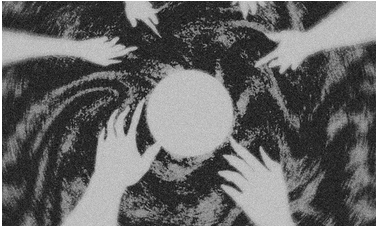


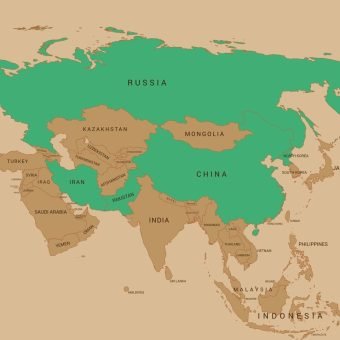

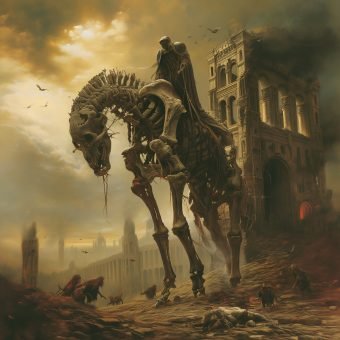

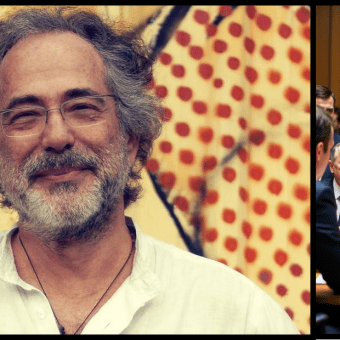

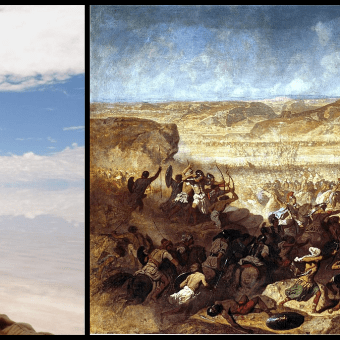
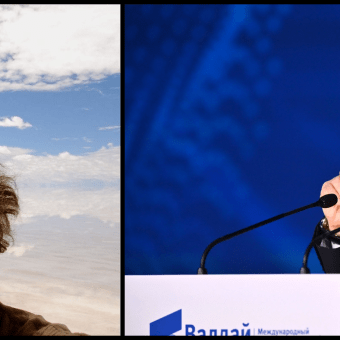
This article was one of the worst I could find. The term itself is now undergoing resistance. It is mainly coming from Indian scholars, who are painfully aware that India cannot be classified as a civilizational state. So the term itself is attacked. I started reading the modern scholarly work… Read more »
Do you have access to a good TCM practitioner? The complexity of different types of Body Heat is something that a good practitioner can help with either acupuncture, traditional massage or herbs. But hey i’m allergic to most scholars, the abstraction literally makes my head hurt.
Yes, besty friend – acupuncturist. Thanks.
Shashi Tharoor is yet another propagandist for Liberal Democratic Totalitarianism, which is premised on the false narrative that so-called “Liberal Democracies”=Freedom and so-called “Illiberal States”=Tyranny. Like most geopolitical analysis from Anglophone/European propagandists, this narrative covertly advances a malign agenda: To justify Anglo-American Empire and its moral right to rule the world,… Read more »
Civilizations rest on an overarching framework for social and political life subsuming elements of religion, ethnicity and language, while liberalism seeks to transcend such elements in claiming universal applicability for its values and principles.Your description fails to account for the most important element of any state, civilizational or otherwise, its… Read more »
Delighted that you cut to the essence Godfree: Can we agree that the strength of the PRC’s moral core, of which you so firmly speak, can be seen as further strengthened and deepened because it has the wisdom to combine into a functioning unity both the traditions of Confucianism and… Read more »
You might enjoy this, i found it on one of the China channels i watch a few months ago, its an educational presentation in 5 parts. its is light and fun, made for younger people i guess. English subs.
“Marx enters the Confucian Temple”.
https://www.youtube.com/watch?v=yQxaExbgLDs&list=PL8R-uen6FfFxXZmwBdb-_Srv4hGn_1DSJ
Do you think Godfrey that Marxism and Confucianism merge so well because they are both materially based systems? I always feel that there must have been a visionary spiritual component to Marx for him to conceive of such a compassionate collectivist ideal in the midst of an increasingly liberalising Europe.… Read more »
The author has far too rosy a view of liberalism. I hear a warning bell whenever I see the word “illiberalism”. Those who use it speak the language of imperialism. It’s use is a denigration of those that liberalism cannot control. A denigration of those who resist the neo-colonialism that liberalism… Read more »
excellent comment Steve. Yes I agree about the terminology being already an intentional negative Liberalism or Consumer Individualism: When nation states give rights to individuals whilst not protecting and cherishing the natural human collective. When instead they purposefully decimate any collectivism both at home and abroad. When the end result… Read more »
Steve and K: You guys are so right on. It looks like you are both having a lot of fun making your points while demonstrating your skill at staying well independent of the the Socialist lexicon!
ha ha Snowy, not intentional, but its good practice to express these fundamentals in different ways so as not to bore everyone. 🙂 I think I have said at least once I’m a Socialist with any characteristics that work for the good of the people. And I have great respect… Read more »
K, your intuition about Locke is spot on. Hobbes and Locke figured prominently in the debates that led to the US Constitution. Snowy, I actually had this prepared for another site, but have not had the chance to use it yet. But I will. I find it to be malicious… Read more »